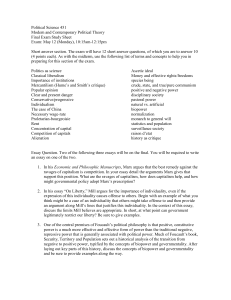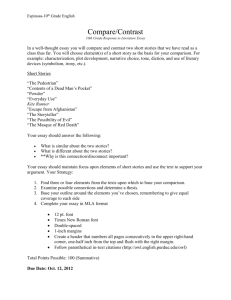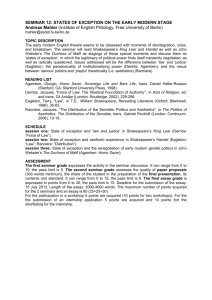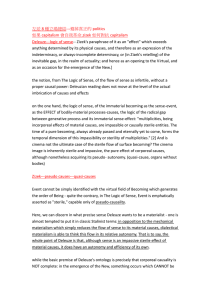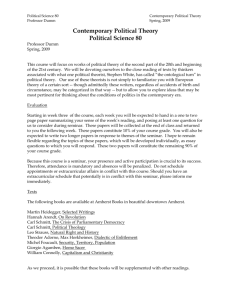Political Science 451 Modern and Contemporary Political Theory
advertisement
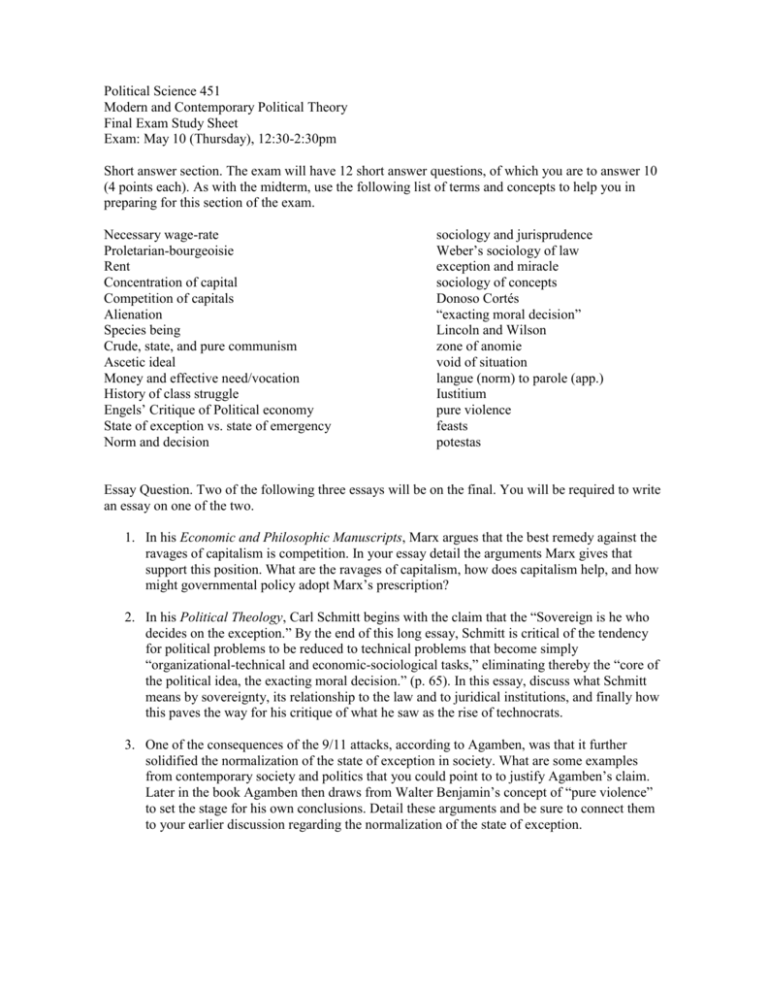
Political Science 451 Modern and Contemporary Political Theory Final Exam Study Sheet Exam: May 10 (Thursday), 12:30-2:30pm Short answer section. The exam will have 12 short answer questions, of which you are to answer 10 (4 points each). As with the midterm, use the following list of terms and concepts to help you in preparing for this section of the exam. Necessary wage-rate Proletarian-bourgeoisie Rent Concentration of capital Competition of capitals Alienation Species being Crude, state, and pure communism Ascetic ideal Money and effective need/vocation History of class struggle Engels’ Critique of Political economy State of exception vs. state of emergency Norm and decision sociology and jurisprudence Weber’s sociology of law exception and miracle sociology of concepts Donoso Cortés “exacting moral decision” Lincoln and Wilson zone of anomie void of situation langue (norm) to parole (app.) Iustitium pure violence feasts potestas Essay Question. Two of the following three essays will be on the final. You will be required to write an essay on one of the two. 1. In his Economic and Philosophic Manuscripts, Marx argues that the best remedy against the ravages of capitalism is competition. In your essay detail the arguments Marx gives that support this position. What are the ravages of capitalism, how does capitalism help, and how might governmental policy adopt Marx’s prescription? 2. In his Political Theology, Carl Schmitt begins with the claim that the “Sovereign is he who decides on the exception.” By the end of this long essay, Schmitt is critical of the tendency for political problems to be reduced to technical problems that become simply “organizational-technical and economic-sociological tasks,” eliminating thereby the “core of the political idea, the exacting moral decision.” (p. 65). In this essay, discuss what Schmitt means by sovereignty, its relationship to the law and to juridical institutions, and finally how this paves the way for his critique of what he saw as the rise of technocrats. 3. One of the consequences of the 9/11 attacks, according to Agamben, was that it further solidified the normalization of the state of exception in society. What are some examples from contemporary society and politics that you could point to to justify Agamben’s claim. Later in the book Agamben then draws from Walter Benjamin’s concept of “pure violence” to set the stage for his own conclusions. Detail these arguments and be sure to connect them to your earlier discussion regarding the normalization of the state of exception.
